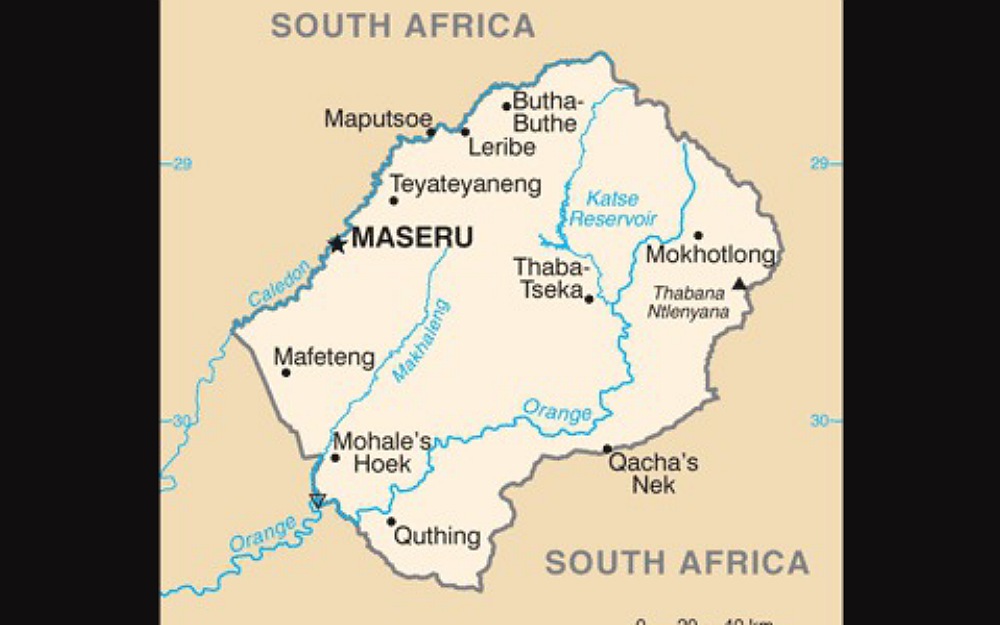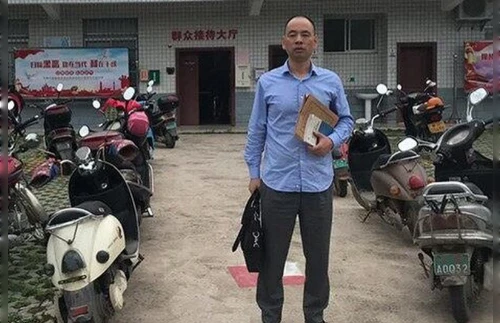
Journalists and media freedom activists are objecting to a government proposal in the African nation of Lesotho to restrict social media, saying it amounts to stifling speech for everyone in the nation of 2 million people.
The set of regulations, introduced for debate by lawmakers this week, would require all social media users with more than 100 followers to register as “internet broadcasters” — a move that would, in turn, require them to abide by the same rules that govern broadcast media houses. It would also allow regulators to investigate social media users’ posts and even order them to remove them.
“Lesotho is following in the footsteps of Tanzania in seeking to regulate online content creators,” the Media Institute of Southern Africa, a media monitoring group, said in a statement, adding that this “could be a pretext to curb freedom of expression and digital rights.”
Journalist Rapeland Radebe covers Lesotho from neighboring South Africa, for South Africa’s state broadcaster and others. When VOA spoke to him on Thursday, he had more than 8,300 Twitter followers.
“The law itself, it’s really, draconian, for lack of a better word, to try and say you need to regulate anyone who has more than 100 participants,” he told VOA. “… I think it’s nothing short of absurd, really.”
African governments are regularly accused of trying to police social media. For years, different governments have been accused of cutting access to the internet during times of unrest. Internet freedom monitors say that is precisely what the government of Guinea is planning to do ahead of a contentious election this weekend.
But other nations have used their laws to limit social media, like Tanzania, which recently passed a set of regulations that seek to punish social media users who “ridicule, abuse or harm the reputation, prestige or status of the United Republic of Tanzania.” Last year, Kenya passed a similar law, sparking outrage from journalists and academics.
“It is difficult to understand what problem the bill seeks to cure other than to try and introduce online censorship,” John Walubengo, a lecturer at the Multimedia University of Kenya, wrote in an editorial in one of the country’s most prominent newspapers.
VOA asked Lesotho’s prime minister, Moeketsi Majoro, to comment on the proposed law. He did not respond to several requests seeking comment, and has not directly addressed the matter on Twitter, where his official account has about 7,100 followers.
And, Radebe noted the regulations could be impossible to enforce. Lesotho is an enclave nation surrounded on all sides by South Africa, and the affairs of both countries are intimately entwined. So, he said, anyone using a South African SIM card or network to post on social media would technically be subject to South Africa’s looser regulations.
But, he notes, the proposed restrictions pose a unique problem for many of the nation’s small broadcasters, which use the internet to reach out to listeners beyond the mountainous nation that in recent years has struggled with political instability.
Radebe predicts that most Lesotho residents will continue to tweet, post and live their online lives as normal.
“I don’t think this is going to come close to even scaring anyone with any sense of decency,” he said. “In fact, what you are going to do is create unnecessary animosity, by turning ordinary law-abiding citizens into criminals.”
He saidthe law doesn’t make any sense in the 21st century when people use social media in their everyday lives.
“These are the tools that ordinary poor people use to organize their businesses, their social groupings, for funerals, for family — many other reasons,” he says. “And to implement some sort of regulation towards that — what is the intention?”
–VOA
Chinese Rights Lawyer Lu Siwei Sentenced to 11 Months in Prison
After Inhaling Deodorant Spray in TikTok Challenge,Eight Years Old Brazilian Girl Dies
Regular Exercise Keeps Your Pet Healthy
How to Report Child Abuse in India
Sri Lankan Police Pull Plug on Vietnamese Monk’s Tour Until He Changes Visa
North Korean Troops May Enter Ukraine Doon,Kyiv Warns
First Time Parents At Nearly 100 Years of Age
Home Made Food for Pets
Subscribe Our You Tube Channel
Fighting Fake News
Fighting Lies
















